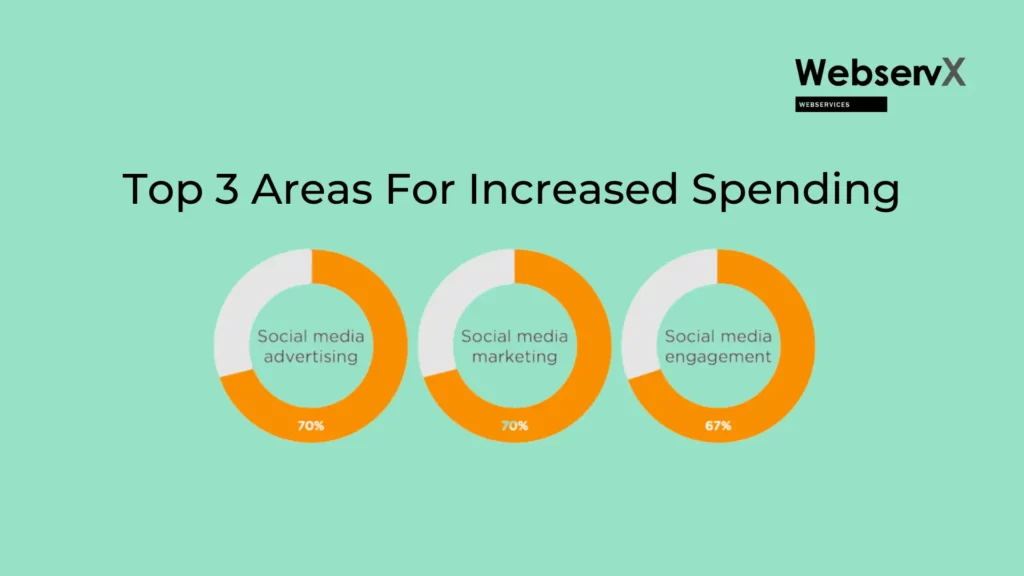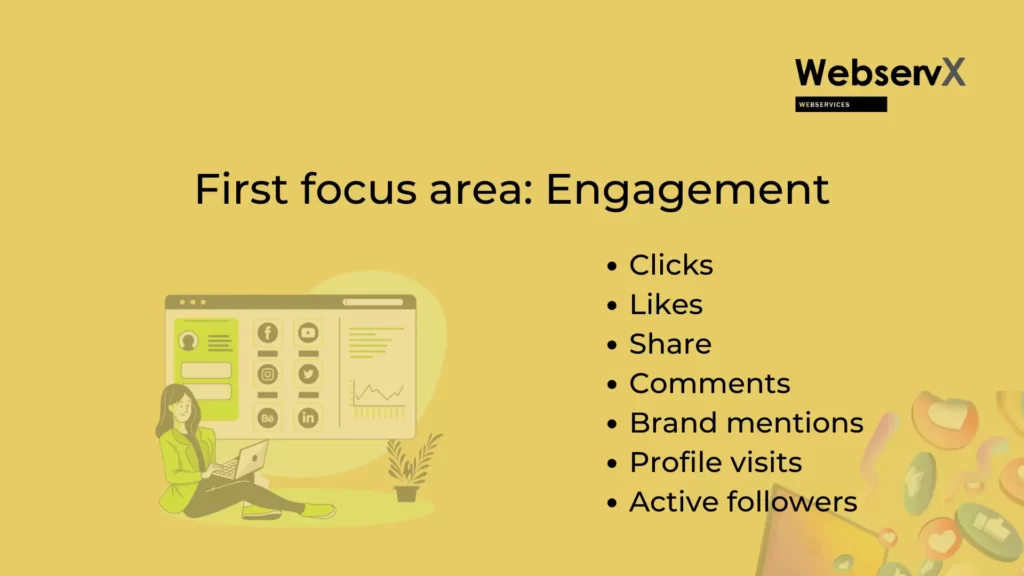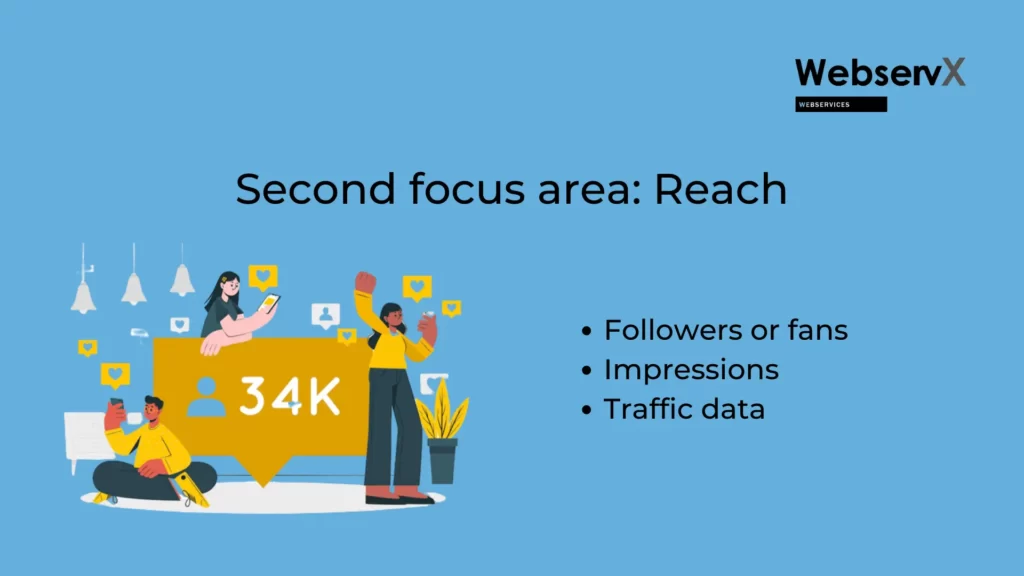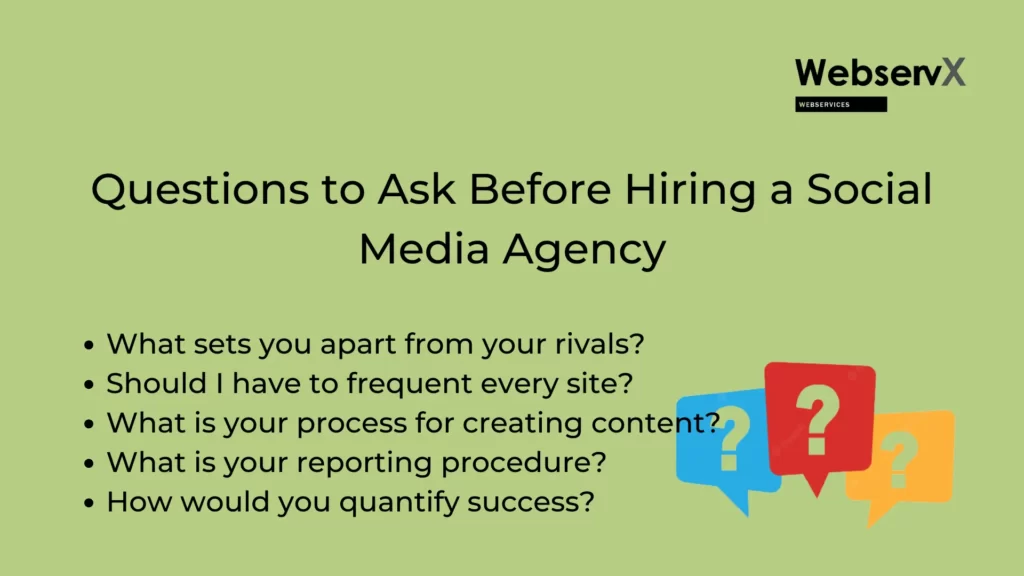Learn These Things Before Hiring A Social Media Agency
It’s incredibly simple to enhance your brand’s visibility on social media platforms in this day and age where everyone is hooked on social media. Therefore, to stay competitive, Hiring a social media agency must maintain its plans.

Nowadays, social media marketing is a thing. There are many firms on the market, and because of the fierce competition, it can be very challenging to pick the best marketing agency. Because of this, everyone wants to know in advance what to expect and whether the marketing agency’s standard is attainable.
Before Hiring A Social Media Agency, consider the following items:
How to contact a company
You must decide if you need a full-service marketing firm or just a digital marketing agency. Digital marketing agencies assist you with an online presence, whereas full-service marketing agencies assist you with classic marketing techniques like printing, direct mail, broadcast, web marketing, etc. It’s crucial to select firms based on your demands because many organizations think of themselves as full-service marketing agencies.
Necessary Requirements for social media marketing
A plan, a content writer, a graphic designer, someone skilled in analytics, and a person who can manage ads are all necessary when it comes to social media marketing. A person should be wary of those who insist they can complete the task alone because it is not a one-person job.
Using a company or doing it yourself
Many companies utilize outside firms and trust their internal marketing teams. It depends on your brand’s marketing requirements. It is perfect for assessing your budget and researching the market before employing an agency or internal department.
Indicator of Contact
One thing you should consider when Hiring a social media agency is whether or not they will give you a dedicated account manager or social media manager. Why is this crucial? Every time you need something done, getting in touch with the CEO or a specific team member is not optimal for you or the agency. Because of this, the company must assign you a specific manager who will handle all of your needs and work closely with the team.
Your primary audience
Understanding your audience is crucial. Consider your target audience and the social media platforms on which they are active. If your audience is engaged on Instagram or Pinterest, for instance, there is little use in promoting your products there. You can utilize other social media sites, of course, but concentrating on your audience might work wonders for you.
WebservX is the top social media marketing company in A, so look no further. We have been in this business for a very long time, and we are glad to state that some of our clients have been with us since the early days when we were still trying to establish ourselves. Therefore, if you still have questions, get in touch with us so that we can talk about your needs over a cup of coffee.
Finding the Right Employee to Manage Your Social Media

If you want to increase your social budget, you’re definitely thinking about three key investments:
When do you really, genuinely need support with social media?
Social media would have been comfortable for Sisyphus. The potential jobs that social media marketers could complete are practically limitless. It’s always attractive to diversify into smaller social networks, even if you’re succeeding on the major networks (or even especially if you are).
The quantity of work that could be done actually does not justify hiring someone because of all the potential work. If the only requirement for employing social media support was “we’ve got a tonne of work to accomplish,” even a micro-company operating out of a second bedroom could do so. When you are losing out on prospective business, it is the moment to hire for social media. Hire only when you can afford to leave money on the table.
Clarify your expectations for social media.
Before you employ someone to handle any social media job, there is something you need to make clear. You must specify how your company views social media.
Do you approach this the same way a direct marketer would, wanting to track everything and determine their ROI for every platform? Or do you approach this more from the perspective of a brand marketer who just wants to be present on social media?
Can your company afford to use social media just for brand-building purposes if you decide to adopt a brand marketer’s approach? Will your finance department be pleased if all you wanted from social media was a bigger presence? What might happen if finance is not pleased with that?
Set goals and expectations for success.
Let’s say your social media efforts have been successful enough to support a new hire. The next step is to describe exactly what success for this new hire would entail.
You must specify what success will look like before you hire anyone, be it a 10-hour-per-week intern, a full-time social media manager, or an advertising firm. What sort of business outcomes are required to support that intern working 10 hours per week? Even if the intern is free, your business will still incur expenses. A computer and oversight are required for the intern. These are expenses.
Goal-setting for your new hire
The very minimal outcomes need to maintain the project (say, 1,000 new Facebook likes per month).
sufficient enough Results that are satisfactory enough to keep the program safe from being terminated and to at least explore expanding it.
Wild success: Extremely encouraging outcomes that support a 20 percent or more program expansion.
The science of social media is not precise. When you initially set your sights on one item and it doesn’t work out, you can find that another aspect of your work is actually producing excellent results. For instance, after setting up some tracking, you might discover that your efforts to use Facebook were unsuccessful.
Obtaining Social Media Professionals
Where can you begin your search for your new hire now that you have a job description and a budgeted salary? Post a job opening in all the normal locations, including LinkedIn’s employment board, Monster.com, and Craigslist. However, you should also peruse the directory of Certified Social Media Consultants on Hootsuite.
How to evaluate candidates in social media

You will understand you need to know if these folks who claim to know social media… truly do know social media as the responses to your job posting begin to trickle in.
They ought to provide references to cases that highlight their social skills. (If they don’t, immediately toss that resume.) Their social media presence would be the first place to look. Keep track of follower numbers, along with what they have been sharing and liking. Have they responded when others have interacted with their shares or questioned them? Can you determine if they’re utilizing any of the popular social media tools, such as SproutSocial, Buffer, Hootsuite, or Oktopost? How do those social media pages seem if they have listed previous clients or jobs on their applications?
As you carefully review your hire online, be aware of employment discrimination: There is legislation that would prohibit discriminating against job seekers on social media. Not only does this apply to a candidate’s race and religion, but also to their age. Anyone may be a social media rock star, regardless of their age. Checking only the links they give is the most prudent course of action.
The 10 Social Media KPIs You Should Be Monitoring and Tracking
All other metrics are merely vanity measures. That said, engagement, reach, leads, and customers are the four primary KPIs for social media that you should be concentrating on.
First focus area: Engagement
Without a doubt, engagement on social media is the main factor you should pay attention to. All of the other social media KPIs we’ll cover will improve as a result of it.
Engagement is a measurement of how many people like, share, and comment on your social media updates.
A huge reach combined with poor engagement is a warning that your marketing message or content isn’t getting through. If they aren’t interested in what you have to offer, reaching millions of individuals is nothing.
No matter how little your audience is, as long as they are interested, it will develop naturally and produce more leads.
Additionally, participation on websites like Facebook and Twitter has a significant impact on how many users ever see your update (also known as your reach; see target area #2).
Engagement is viewed as a measure of quality and popularity on Facebook and Twitter.
Facebook will filter out your material from more newsfeeds and the more interactions it receives. Similarly, the more retweets or likes a tweet gets, the larger it will appear (in font size) on your Twitter profile.
Depending on the social media platform, several KPIs can be measured; nonetheless, they often include the following:

Clicks
The number of link clicks reflects the calibre of the post’s headline and featured image. Of sure, your devoted followers will click on every link you post, but the majority of users—especially new users—will only click on content that is relevant to them.
A high number of clicks compared to a low number of likes and shares indicates that although your content caught their attention, it fell short of the extraordinary standard required to compel engagement.
Great overall engagement with little clicks suggests that you should test new titles or images to improve how you pitch your information.
Likes
People typically gravitate toward things that are popular, therefore like to increase attention. Additionally, more likes let most platform algorithms know that this particular piece of content merits a higher ranking in search results.
Share
Today, clicking “like” on a post is a dumb, passive activity. Likes are great, and you certainly want them, but sharing requires thought. When someone shares your content with their friends, coworkers, and family (or retweets, re-vines, etc.), they are making a personal recommendation. Shares are therefore a terrific sign of the calibre of your work.
Comments
A conversation is sparked by interesting, pertinent content. You are better off having comments than none at all, even if they are negative. Silence is not useful for developing your marketing; praise, criticism, and general conversation are. A reliable indication that your material is hitting all the right interest areas is when people comment on your comments.
Brand mentions
Even when you are not present, tags or mentions indicate that people are talking about your business. Another social media KPI that particularly emphasizes relevance is this one, as it demonstrates continued top-of-mind awareness.
Profile visits
This metric won’t be available on all social media platforms, but if it is, it’s important to pay attention. Today, a wide variety of social media platforms are used as brand research search engines. Many people will follow you, yet they might never look at your profile.
However, those who are just beginning to research your company will undoubtedly check your profile. Although profile visits do reflect an interest in your brand beyond your most recent post, this KPI is less significant than the others because you can’t really quantify intent to buy.
Active followers
Unluckily for most brands, the bulk of individuals who “like” or follow your page are unlikely to visit it frequently, let alone check out its content. An active follower is someone who has checked in and interacted with your material within the last 30 days.
On most networks, it might be difficult to do this, but on Twitter, it’s much simpler because of programs like MangeFlitter. ManageFlitter is a helpful free tool for locating any inactive or phony users. Signing up only takes a few seconds, and you can quickly delete any followers who aren’t relevant.
Second focus area: reach
A traditional marketing indicator that is still significant today is reaching. It shows how many eyes your message is truly reaching and how far it has actually travelled.
Social media reach measurement can be deceptive at times because it simply indicates how many users may have seen your post or that it was made available. Reach is basically simply an estimate, unlike an engagement, which provides answers that are clear-cut, like “I got x number of likes,” or “I did.”
The following KPIs can be used to gauge reach:

Followers or fans
Without any involvement, the total number of social media followers for your business shows how far it has spread. This is the total number of persons who have expressly expressed a desire to view your content.
Impressions
Impressions indicate how frequently a person saw one of your posts in their timeline or newsfeed, either because they already follow you or because a friend of theirs liked or shared it.
This merely indicates that they had the opportunity to, not that for each impression somebody really looked at your message or even noticed it. While ambiguous, a larger number is always preferable.
Traffic data
This is a major issue. How much of your website’s traffic is generated by social media? Make sure that this number accurately reflects how much time and work you put into creating your social media content.
If you use HubSpot, it will be simple for you to recognize this number. Simply go to the sources section of the reports. Check to see if a sizable portion of your traffic originates from social media. If not, you might need to make your postings more widely read. A social media postings platform like SproutSocial or Hootsuite might be useful.
Questions to Ask Before Hiring a Social Media Agency

What sets you apart from your rivals?
Google returns more than 230 million results when you search for a “social media agency.” There are tens of thousands of companies that market themselves as social media specialists, but not all of them are appropriate for every brand. A competent company that cares about its clients’ success and has a history of that success is what brands need to look for.
Brands should inquire as to what makes potential agencies stand out from the competition, and they should seek responses that notably mention a proven track record, case studies, and a clearly stated and articulated process. These responses demonstrate a company’s commitment to building a positive online presence and concern for its customers’ outcomes.
Should I have to frequent every site?
Brands can use this query to assess an agency’s integrity and level of knowledge. If the agency responds “yes,” that may be cause for concern for the brand. Every business is not a good fit for every social media platform. Different user groups are present on each network. For instance, whereas 60% of Facebook users are women, approximately 80% of Pinterest users are women, and they tend to be wealthier and better educated.
Businesses should carefully select their platforms based on their target market and objectives. Instead of merely encouraging every company to be active on every website, a reputable social media marketing agency would research the target demographic for a brand and then choose the social media sites most likely to reach those people.
What is your procedure for creating content?
Without continuously posting high-quality material, no social media strategy can be successful. How an agency approaches to research, content development, and content calendars should be one of the most crucial topics a company asks when hiring agencies. Quality agencies won’t duck the content issue; instead, they’ll have a plan in place to identify the kinds of content that appeal to target audiences the most and then promote it through free or paid advertising.
What is your reporting procedure?
Brands hiring a social media agency for social media marketing should be able to track the effectiveness of the campaign and hold the company responsible. A standardized monitoring and reporting procedure can help in this situation.
When it comes to regularly updating the brand on both positive and bad developments, agencies should have high standards. Social media marketing can take time and affect customers gradually. Demanding accountability for results is crucial, but companies must also exercise patience.
Brands and agencies should work to communicate at least twice a month, if not more, regarding outcomes, tactics, content possibilities, new technology, and prospective strategy options. The lack of a method for reporting continuing results may indicate that an agency isn’t as closely connected to its clients as is required. Hiring a social media agency is much beneficial.
How would you quantify success?
Brands that use social media and hire a social media agency must start with a specific objective in mind. When it comes to monitoring available metrics like engagement, click-through rate, web traffic, organic reach, paid reach, and conversions, brands should require that any possible agencies have a predetermined standard.
Social media offers the advantage of allowing strategies to be changed in real-time in response to data being gathered. Goals may change as companies and agencies gain more insight into the target markets and new technical possibilities.
When Hiring a Social Media Agency, Here Are 5 Things to Consider

Social proof provides credibility.
Examining an agency’s experience and the social proof they use to establish trust might help you quickly weed out questionable agencies. Verify if their portfolio supports their claims of competence in your industry vertical if they make such claims. Check out their customer reviews on unbiased review aggregators, and do your research by getting in touch with previous customers.
Keep an eye on the marketing avenues they are using to advertise their services. Look at their logo, marketing materials, social media presence, and interactions with customers. Through this, assess the calibre, originality, and efficiency of their job. They can do it for you if they can do it for themselves.
Avoid using a general strategy.
Watch out for companies that try to sell you template solutions. The drawback of working with an agency that specializes in your industry vertical is typically this. They may believe that your business is no different because they have completed so many tasks. If their initial proposal lacks study and strategy and is too general, they will probably offer standard services.
Beware of outrageously low prices and exorbitant claims
If a business gives you a price that is significantly less expensive than that of the competitors and guarantees to bring about immediate organic growth or inflated sales leads? Think again. These could seem like appealing ideas, but they are frequently very wrong. Ask for a roadmap of the marketing strategy, talk about how leads are qualified, and inquire about estimates.
Intellectual property ownership
Make sure that any concepts developed or other collaboratively produced materials belong to the company that hired the agency. This could include ideas, assets, or anything else. You should have discretion and control over them because they are only your property. It’s important to reevaluate if the agency is being sneaky about ownership rights.
Determining the best deal
Following that, each agency will present you with a suggested technical, budgetary, and temporal solution. Examine the suggestion and pose inquiries. Clarify team dynamics, communication, and processes. A sales pitch or a marketing consultancy may be requested from businesses. Consider a trial run if there are two strong candidates but you appreciate the agency’s strategy. A small paid project that supports a certain aspect of a business’s purpose may prove to be a useful differentiating factor.
